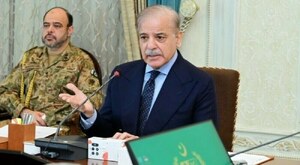After five years coping with the most dangerous province in Iraq, the US Marines have been given their next assignment: the most dangerous province in Afghanistan. But this time around, they say they will talk a little more and shoot a little less.
"We spent so much time in Iraq learning from our mistakes," said Corporal Mahmoud Awada, a 21-year-old Lebanese-American Marine from Utah, who spent the second half of 2007 and early 2008 in Anbar west of Baghdad.
"We learned that we can't just go around kicking down doors because that won't work. In Iraq, what really helped us win over there, make the situation better, was gaining the trust of the people, becoming friends with them." The Marines that have arrived in recent weeks in Afghanistan's wild southern Helmand province are a different force from the Marines who blasted their way into Anbar.
Back then, the Marines were still learning the art of counter-insurgency warfare. An Arabic speaker, Awada worked closely with the Iraqi army. It was frustrating at times, but it opened his eyes.
"You have to sit down and talk with them, talk for a while, enjoy a nice cup of tea, get to know them a little better, ask them how their family is doing," Awada said.
The Marines fought two massive battles for the Anbar city of Fallujah in 2004, the biggest engagements of the Iraq war. Anbar was almost completely in the hands of insurgents for the next 2 or 3 years and the Marines gained an early reputation for heavy-handed use of firepower.
They had turned it around by late 2007, forming an alliance with local tribal leaders against al Qaeda militants that helped transform Iraq's most violent province into one of its safest.
Today, they are being asked to repeat the trick in Helmand, the heartland of Afghanistan's Taliban. US President Barack Obama, overseeing a troop drawdown in Iraq, has made Afghanistan the military's top priority. The 8,500 Marines sent to Helmand are the biggest wave of a reinforcement strategy that will see US forces in Afghanistan rise from 32,000 at the end of 2008 to 68,000 by the end of 2009.
BR100
15,186
Increased By
82.6 (0.55%)
BR30
42,842
Increased By
223 (0.52%)
KSE100
149,361
Increased By
1164.3 (0.79%)
KSE30
45,552
Increased By
281.7 (0.62%)





















Comments
Comments are closed.